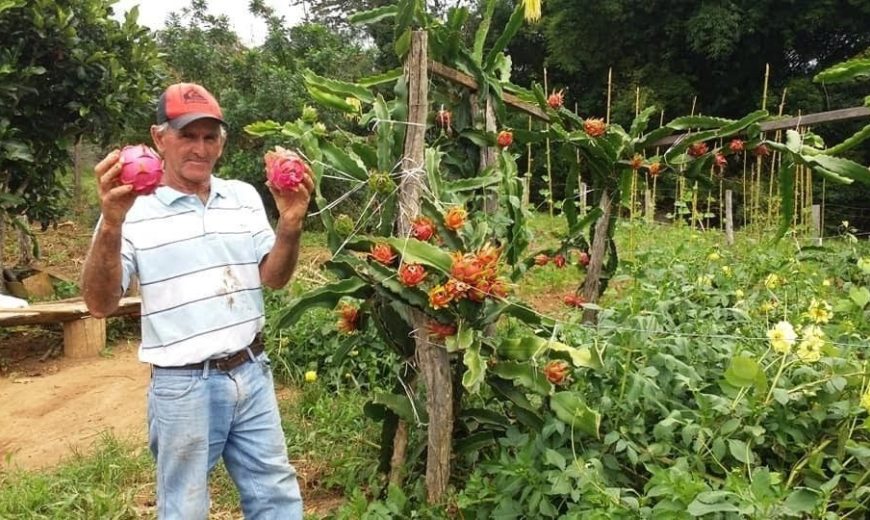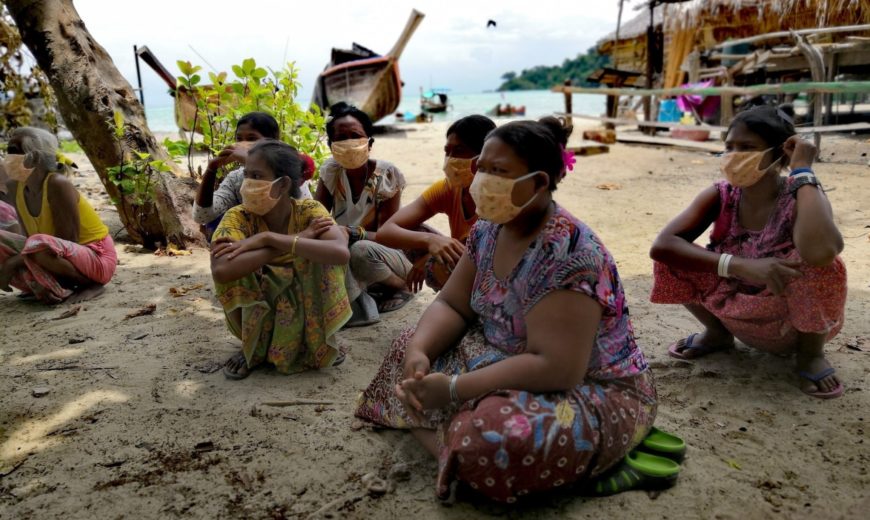Contact the communications team
E-Mail: press@fairtrade.net
6 Jul 2020
July 4th marked the International Day of Cooperatives. To celebrate it so far, we have highlighted the resilience of cooperatives and the strength of their shared ownership and decision making. Today we focus on the power of cooperatives to impact the broader community.
Created in 2013, the Solidarity Garden Project is an initiative of the Cooperativa dos Productores do Alto da Serra (APASCOFFEE) in Brazil, in partnership with producer Edgar Azevedo. Funded by Fairtrade Premium, the project aims to provide healthy nutrition in rural schools and today reaches approximately 170 kids and adolescents in the Ferreira State School and the CEMEI Maria Madalena Ferreira municipal.
Azevedo has been in charge of the plot, while the cooperative APASCOFEE provides technical support, plants, seeds, and equipment necessary for production. Today, the garden has a great capacity for organic production, growing in an ecologically sustainable way, without pesticides. A variety of vegetables are produced, including squash, zucchini, watercress, lettuce, beets, chives, carrots, güisquil (also called chayote, similar in taste and use to a potato), cabbage, cauliflower, spinach, cassava, corn, chili green, okra, cucumber, arugula and tomatoes. The garden also boasts a wide variety of fruits: avocado, pineapple, blackberry, banana, guava, orange, lemon, papaya, mango, guanabana, and pitaya.

“This has been the result of a great association, which together has not only improved (the production), but also made school food much more nutritious and tastier,” said Maurício Alves Hervaz, president of APASCOFFEE.
Due to COVID-19, schools and companies are closed, but this has not stopped the initiative. On the contrary, it reactivated the cooperative’s hope of continuing to help families and communities. Now APASCOFFEE, together with Edgar Azevedo, joined forces to make donations of vegetables to the local home for the elderly. They also plan to bring food to the Casa da Criança institutions, which houses children and adolescents. Nutritious vegetables will also be provided for Reviva, an organization that supports vulnerable families and the municipal hospital in the area.
Many other Fairtrade cooperatives are using their own resources to establish food security projects as long-term risk mitigation plans and support communities.
In Thailand, the nation-wide lockdown in response to COVID 19 has affected the livelihood of indigenous people who live on the islands in the Andaman Sea. The fishermen are unable to go to the mainland to purchase food or market their catch, causing shortages of staple food supplies on both ends.
NamOm Community Enterprise Group, a Fairtrade rice, oilseeds, and soybeans producer located in northeastern Thailand, decided to provide emergency assistance to the fishing communities by joining the ‘Trade for life Project- Exchange Fish for Rice’ started by the Royal Thai Air Force and Thai Community Foundation.

The Thai Air Force collected rice donations at the municipality of Yasothorn province, in northeastern Thailand. NamOm contributed 400 kg of rice, joining other farmer donations in the region for a total of 9 tonnes. The Air Force transported and distributed the rice to 1,300 indigenous fishing people in Phuket. In return, the fishing communities gave 1.5 tonnes of dried fish back to the Air Force to be flown to the rice farmers as a thank you, and mutually beneficial exchange.
Cooperatives are often essential members of their broader community, bringing farmers and families together, and allowing them to contribute in meaningful ways. By investing their Fairtrade Premium into community efforts, cooperatives have the power to make a difference in times of urgency as well as over the long term.
E-Mail: press@fairtrade.net